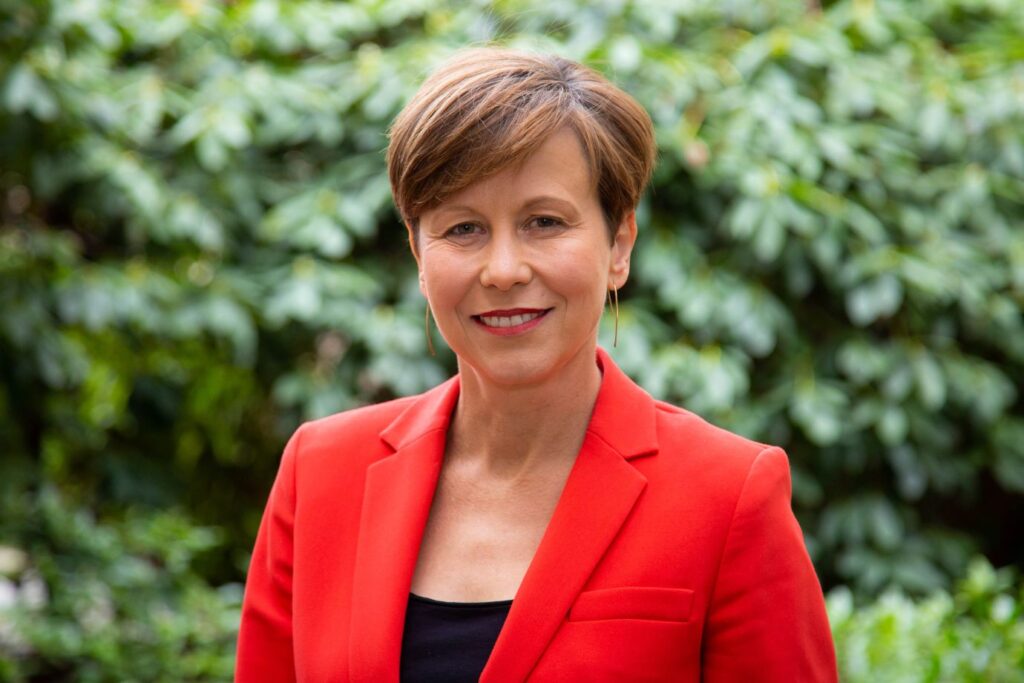Senator Jenny McAllister recently delivered a speech at the National Labor Women’s Conference, reflecting on the role women played in shaping Australia’s labour movement and how their legacy continues to impact the government today. Below is an edited version of that speech.
If you’ve ever been to Victorian Trades Hall, you’ll know that it’s a pretty remarkable place. Where else in the country can you so concretely engage with the birthplace of the movements that have shaped Australia’s history?
I had the great fortune of visiting Trades Hall over the weekend for the National Labor Women’s Conference. It was a chance to reflect on its significance not only for worker’s history but for women’s history as well.
One hundred and forty-two years ago, a group of women met at Trades Hall. They were all women – tailors who worked for a company called Beath, Scheiss and Co. on Flinders Lane.
They were paid by the piece, slaving over Singer machines for 14 hours day, often taking garments home to work through the night.
In 1882, the company decided to cut the piece rate at the factory, cutting their pay from 24 shillings to only 18-20 shillings a week.
These women weren’t going to put up with that.
Ellen Creswell, a widow and worker, was one of these women. She moved a motion before her fellow employees to form “a union for mutual protection and improvement.”
These women had walked in as individuals, but left as a collective. The Tailoresses Association of Melbourne was Australia’s first union comprised entirely of working women.
They led a strike, drawing up union rates and a log of claims, and stopping the pay cut. Then they unionised 13 other factories across the city.
The Tailors Union had forced employers across the whole industry to deliver wage rises and new industry standards across Melbourne.
These women were only one thread in what became the fabric of our nation’s nascent labour movement – a movement which has birthed trade unions, cooperative societies and of course, the Australian Labor Party.
From shop floors to the floors of parliaments across the country, women since have stood up for themselves, their families and their communities. They’ve fought for their industrial interests, for their bodily autonomy, for healthcare, and for their mutual protection and improvement.
Women have always been essential to the labour movement. Labour women too have always been essential to the feminist movement.
In the labour movement, women found not only to share dreams of a better world, but a channel to build the capacity to plan and to organise. And these women have shaped Labor’s distinctive approach to delivering woman’s rights. For Labor, women’s economic rights are at the heart of our work.
To take just one important example, when women earn less, work in less secure jobs, have fewer savings and lower superannuation balances they don’t have the economic security they need to protect themselves and their children from violence.
These issues can’t be separated. Economic empowerment is the foundation for our policy work.
Under the leadership of Minister for Women Katy Gallagher, our first term of government has been a transformative period for women in this country.
We brought the gender pay gap to record lows, with women working full time earning $255 more a week on average than they were three years ago.
We introduced 10 days paid family and domestic leave because no woman should ever have to choose between leaving violence and their income. Alongside this, we’ve made the historic investment of over $4 billion to end violence against women.
We’re expanding Paid Parental Leave to reach 26 weeks by 2026 and paying superannuation on Paid Parental Leave.
We’ve made childcare cheaper and from 1 January 2026, guaranteeing at least three days of subsidised child care each week.
We’ve increased wages in historically underpaid feminised industries such as aged care and child care.
We’ve invested nearly $800 million for women’s health including listing new contraceptive pills and menopause hormone therapies on the PBS, because women’s health should never be an afterthought.
Creating the conditions for change is hard. Embedding that change for the long term is even harder.
One hundred and forty-two years ago, a group of women decided to form a union to fight against a pay cut. History tells us that they changed a great deal more than that.
One hundred and forty-two years later, we have the first federal government with a majority of women which is putting social and economic empowerment at the heart of our reforms.
Labor is proud of the women who laid the foundations of our movement and our party. We are the custodians of a movement born from extraordinary changes of those who built power out of nothing, and we honour their legacy by working every day for a more equal society where women are respected and valued.


